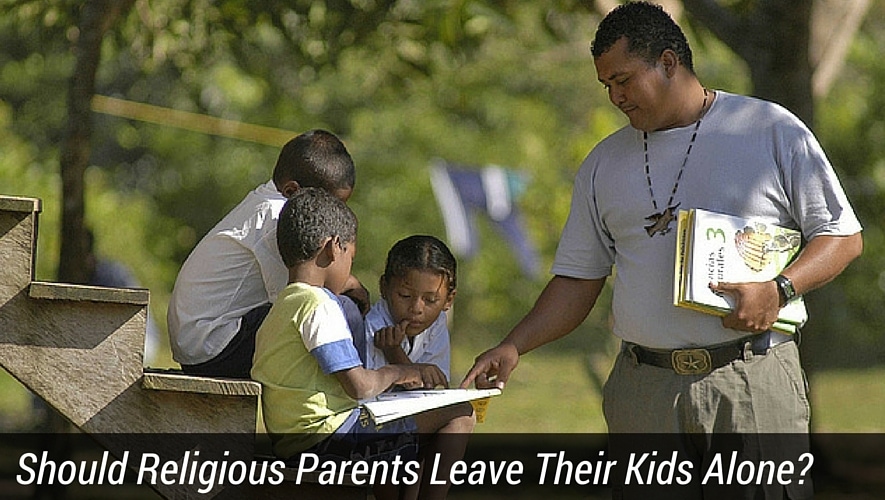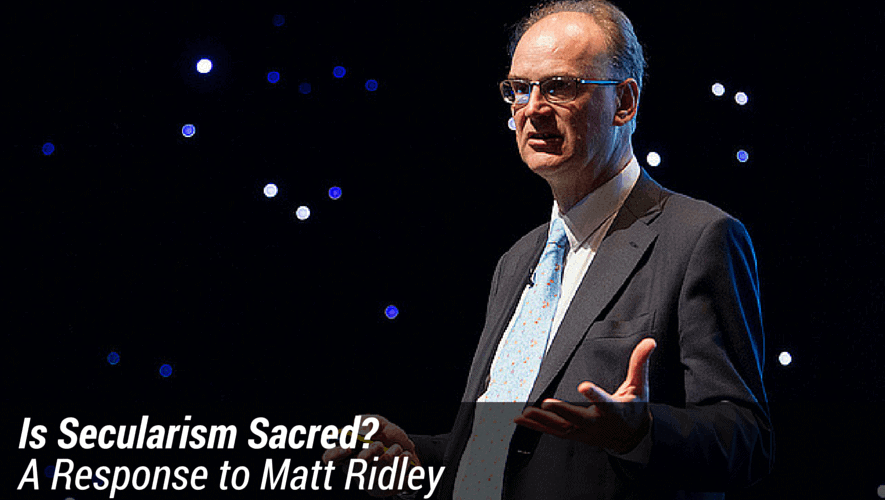Religion is a hot topic these days, with Daesh prompting right-wing commentators and New Atheist activists to renew their criticism of religion in general, and Islam in particular. I spied last week a tweet (below) from one such critic Maryam Namazie, which mentioned religion being ‘imposed’ on children. It reminded me of New Atheism’s golden-boy turned embarrassing-uncle Richard Dawkins, who has repeatedly argued that it’s immoralto raise your children as religious and teach them your beliefs, saying earlier this year: “...there really is an important difference between including your children in harmless traditions, and forcing on them un-evidenced opinions about the nature of life or the cosmos.” The argument is that to raise a child as religious is indoctrination, which colours their future unfairly. Instead, we shouldn’t raise them in any religion, and let them wait until they reach intellectual maturity before they choose their own faith or non-faith worldview.
This is a common line amongst New Atheists, and one that to many seems reasonable at first glance. Its logic, however, is deeply flawed. Here are four reasons why religious people have absolutely every right to raise their children according to their own religious convictions:
1 . We all raise our children according to our beliefs- atheists included. When we examine Dawkins’ above statement, the hypocrisy of the stance is immediately apparent. It hinges on the idea that religious people hold “… un-evidenced opinions about the nature of life or the cosmos.” Hold on, that sounds rather like an opinion itself doesn’t it? I don’t think my beliefs are un-evidenced. After all, who does? We can’t all be right, but we all reserve the right to believe that we are! Who’s to say that I don’t deem atheism as an un-evidenced stance that is harmful to the moral and spiritual welfare of my children? If so, how could I, in right conscience, allow my children not to be given the opportunity to spiritually develop in their youth? What Dawkins’ argument boils down to is: your belief is different to mine, and I’m obviously right, so how dare you spread your ignorant beliefs to your children! The whole position flies in the face of the very freedom of conscience it purports to protect.
2. My religion teaches me not to force belief upon my children anyway: There is a huge difference between raising your children in a religion, and forcing that religion on them. The Qur’an (usually the prime target of these criticisms) teaches clearly that “there is no compulsion in religion,” (2:257) and, “whoever follows guidance, follows it for the benefit of his own soul; and whoever goes astray, goes astray only to its detriment. And you are not a guardian over them,” (39:42). In line with this, I plan to raise my children as Muslim, and to teach them why I believe my religious convictions are true. But if, as they reach intellectual maturity they’re not convinced, then so be it- I won’t force them to profess belief, not least because forced belief is hollow. I stand with people of all faiths and none in condemning those who seek to force their religion upon others. As Damir Rafi successfully argued in HuffPost last week, punishment for apostasy is un-Islamic concept, rife though it is in some parts of the Muslim world.
3. Being raised outside religion means you’re not given an informed choice: the premise upon which this idea is built is that it’s fairer for a child to be raised irreligiously, leaving the door open to them to choose a religion in adulthood if desired. This however means that people will end up atheists- and for all the wrong reasons. Religion may have a very rational basis, but many of its fruits are not purely intellectual- they are also experiential. If you grow up without having experienced spiritual satisfaction, answered prayers, and a relationship with God, then how can you possibly make an informed choice about religion’s truth? You can only make an informed choice about religion once you’ve lived in it. If then you decide its promised fruits were non-existent then you’re free to leave- but a rejection of religion without ever endeavouring to truly experience its benefits is meaningless.
4. If a religious upbringing meant permanent indoctrination, there would be no atheists: Perhaps the greatest proof that the whole idea is totally unnecessary is that most of the leading proponents of new atheism were born and raised in religious environments, before leaving religion behind. And we all know that religiosity is on the decline, and atheism on the rise. That simply wouldn’t be possible if raising a child as religious bore some kind of indelible religious streak in them. So what’s all the fuss about?
There you have it. Like so many of New Atheism’s demands, this one too produces more heat than light.
Header image reproduced from the GlobalPartnership for Education.












5
4.5